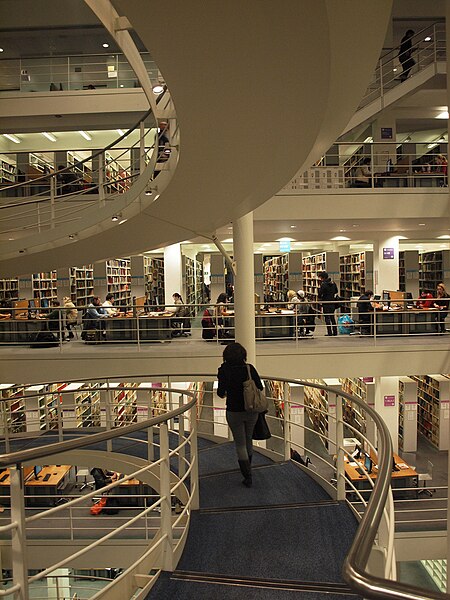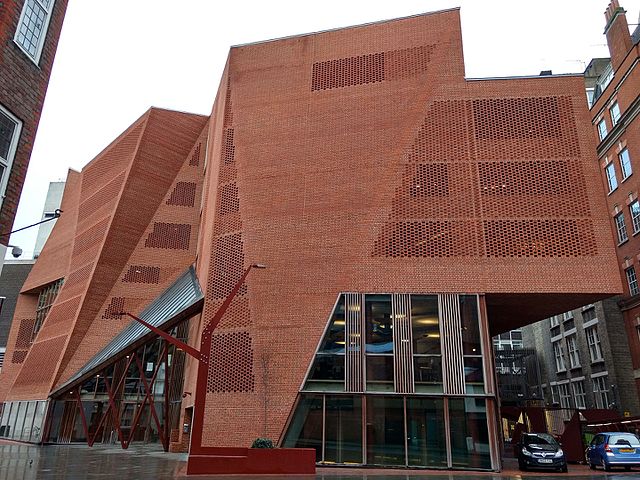
From Monday, 1 March through Saturday, 6 March 2021, Thammasat University students are cordially invited to attend the The London School of Economics and Political Science (LSE) Festival.
This year’s theme is Shaping the Post-COVID World.
See the full list of events here.
The Thammasat University Library collection includes several books about the LSE.
As all TU students know, many distinguished Thammasat instructors and alumni have connections with the LSE, including Dr. Puey Ungphakorn, who graduated from that institution.
The Dr Puey Ungphakorn Centenary Scholarship is awarded, on a yearly basis, by the Bank of Thailand for one student, from Thailand.
On the LSE website, listed among the most distinguished theses in the long history of the institution, is
Dr. Puey’s thesis is also available for download on the Dr. Puey website presented by Thammasat University.

Abundant choices
As the LSE Festival website indicates, it offers
A week of virtual events free and open to all, taking place from 1 – 6 March 2021, about the direction the world could and should be taking after the COVID crisis and how social science research can shape it.
These include a series of 15 Festival Shorts: 10-minute talks by LSE experts available on YouTube as well as more extended lectures of interest.
For example:
Life in a Post-COVID World: learning from Southeast Asia
Monday 1 March 2021 from 7pm to 8pm Bangkok time.
Hosted by LSE Festival: Shaping the Post-COVID World
Although the distinctive outcomes of COVID-19 in Southeast Asia are only now becoming clear, we expect that they can become the basis for innovative and impactful ideas that will matter for neighbouring regions and the world.
Leading thinkers on Southeast Asia reflect on the lessons of COVID-19 for connectivity, governance, and urbanisation in the region and assess the futures it might foretell for Southeast Asia and the world.
Speakers will include:
Hyun Bang Shin (@urbancommune) is Professor of Geography and Urban Studies, Department of Geography and Environment, and Director of the Saw Swee Hock Southeast Asia Centre at LSE.
Nicole Curato (@NicoleCurato) is Associate Professor, Centre for Deliberative Democracy and Global Governance, University of Canberra.
Sin Yee Koh (@koh_sy) is Senior Lecturer in Global Studies, School of Arts and Social Sciences, Monash University Malaysia.
John Sidel is Sir Patrick Gillam Professor of International and Comparative Politics, Department of Government and Department of International Relations at LSE.
Catherine Allerton (@allertonanthro) is Associate Professor in the Department of Anthropology at LSE.
More about this event:
This event is part of the LSE Festival: Shaping the Post-COVID World running from Monday 1 to Saturday 6 March 2021, with a series of events exploring the direction the world could and should be taking after the crisis and how social science research can shape it.
The Saw Swee Hock Southeast Asia Centre (@LSESEAC) is a multidisciplinary Research Centre of the London School of Economics and Political Science (LSE). It develops and fosters academic and policy-oriented research, drawing on a rich network of experts across disciplines at LSE and beyond, while serving as a globally recognised hub for promoting dialogue and engagement with Southeast Asia and the world.

Another example of an event that may be of interest to TU students follows:
We Are All in This Together: has COVID-19 taught us how to save the world?
Monday 1 March 2021 8:30pm to 9:30pm Bangkok time
Hosted by LSE Festival: Shaping the Post-COVID World
ONLINE PUBLIC EVENT
Can the massive shift in the way we now relate to each other, and the rules we choose to live by, help us tackle other collective threats to humanity, like climate change?
We need coordinated and cooperative collective action. Experts in behavioural public policy and sustainability discuss how the experience of the pandemic can be leveraged to enable new, transformative behaviours and policies.
Speakers will include:
Sanchayan Banerjee (@SanchayanBanerj) is a third-year doctoral candidate in Environmental Economics at LSE. He is an Associate Fellow of the UK Higher Education Academy and teaches in the area of applied environmental, developmental and quantitative economics. His doctoral thesis focusses on extending the theory of Nudge Plus, a modification of the toolkit of the policymaker which embeds reflective strategies in a nudge to improve its efficacy and preserve the autonomy and agency of the decision maker.
Nick Chater (@NickJChater) is Professor of Behavioural Science at Warwick Business School. He works on the cognitive and social foundations of rationality and language. He has published more than 250 papers, co-authored or edited more than a dozen books, has won four national awards for psychological research, and has served as Associate Editor for the journals Cognitive Science, Psychological Review, and Psychological Science. He was elected a Fellow of the Cognitive Science Society in 2010 and a Fellow of the British Academy in 2012. He is co-founder of the research consultancy Decision Technology and is a member, representing behavioural science, on the UK’s Climate Change Committee. His is the author of The Mind is Flat (Penguin, 2018)
Adam Oliver (@1969ajo) is a behavioural economist and behavioural public policy analyst at LSE. He has published and taught widely in the areas of health economics and policy, behavioural economics and behavioural public policy. He is a founding Editor in Chief of the journals Health Economics, Policy and Law and Behavioural Public Policy. He edited the book, also titled Behavioural Public Policy (Cambridge University Press, 2013), and authored The Origins of Behavioural Public Policy (Cambridge University Press, 2017) and Reciprocity and the Art of Behavioural Public Policy (Cambridge University Press, 2019).
Ganga Shreedhar (@geeshree) is Assistant Professor in Behavioural Sciences at LSE’s Department of Psychological and Behavioural Sciences, and an Affiliate at the Department of Geography and Environment, The Grantham Research Institute for Climate Change and the Environment, and the Inclusion Initiative. She is an applied behavioural and experimental economist studying how to change human behaviour in ways that simultaneously benefit people and the planet by designing and analysing interventions that help understand consumer and citizen beliefs, preferences and behaviours.
Jennifer Sheehy-Skeffington (@jsskeffington) is Assistant Professor in the Department of Psychological and Behavioural Science at LSE, Visiting Researcher at the Department of Political Science and Government at Aarhus University, and Associate Editor of the British Journal of Psychology. Her research focuses on the interface between socioeconomic conditions, social relations, and decision-making in personal and political domains.
More about this event:
This event is part of the LSE Festival: Shaping the Post-COVID World running from Monday 1 to Saturday 6 March 2021, with a series of events exploring the direction the world could and should be taking after the crisis and how social science research can shape it.
The Department of Geography and Environment (@LSEGeography) is a centre of international academic excellence in economic, urban and development geography, environmental social science and climate change.
The Department of Social Policy (@LSESocialPolicy) is an internationally recognised centre of research and teaching in social and public policy. From its foundation in 1912 it has carried out cutting edge research on core social problems, and helped to develop policy solutions.
The Department of Psychological & Behavioural Science (@LSE_PBS) is a growing community of researchers, intellectuals, and students who investigate the human mind and behaviour in a societal context. Our department conducts cutting-edge psychological and behavioural research that is both based in and applied to the real world.

(All images courtesy of Wikimedia Commons)
